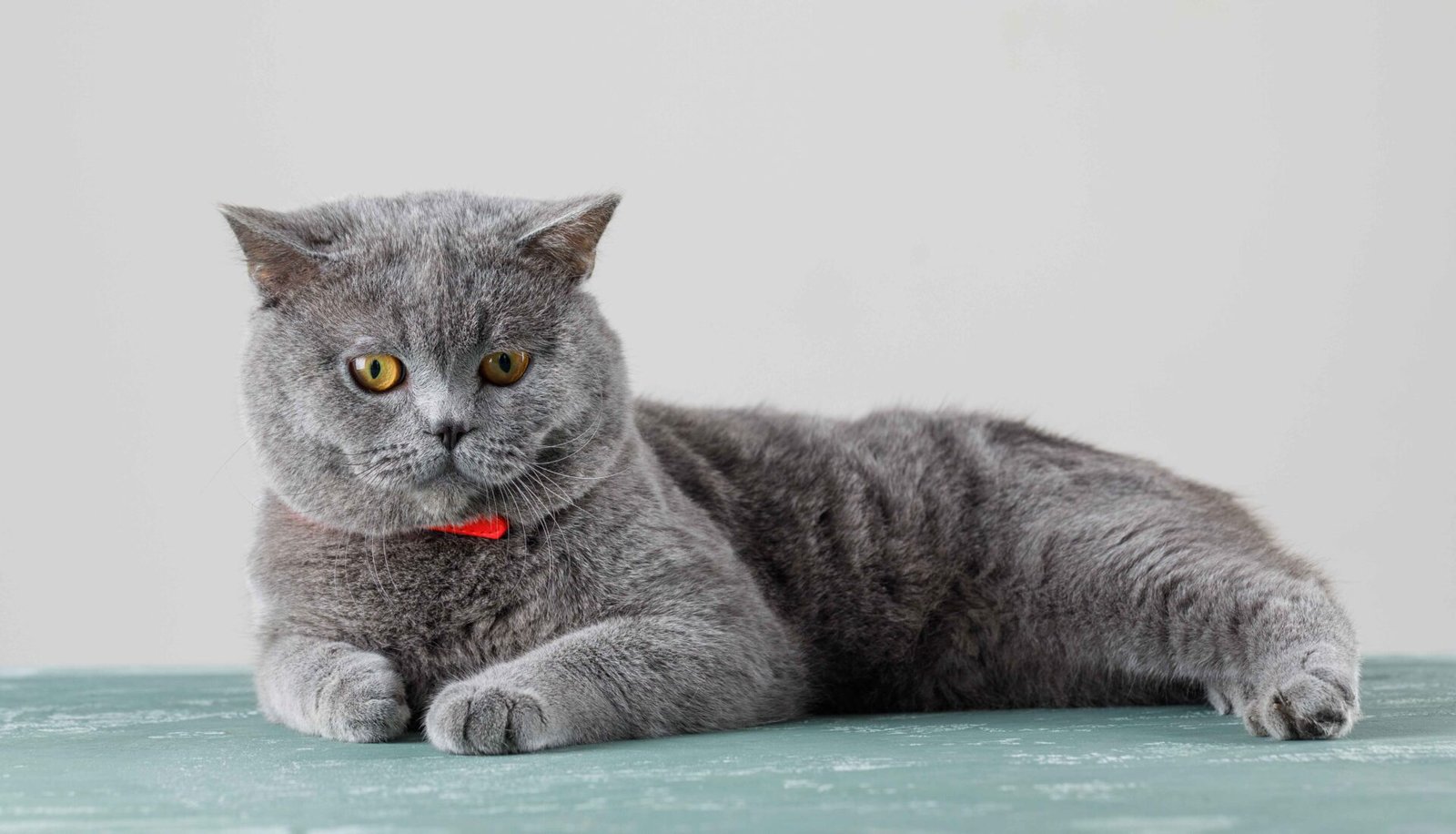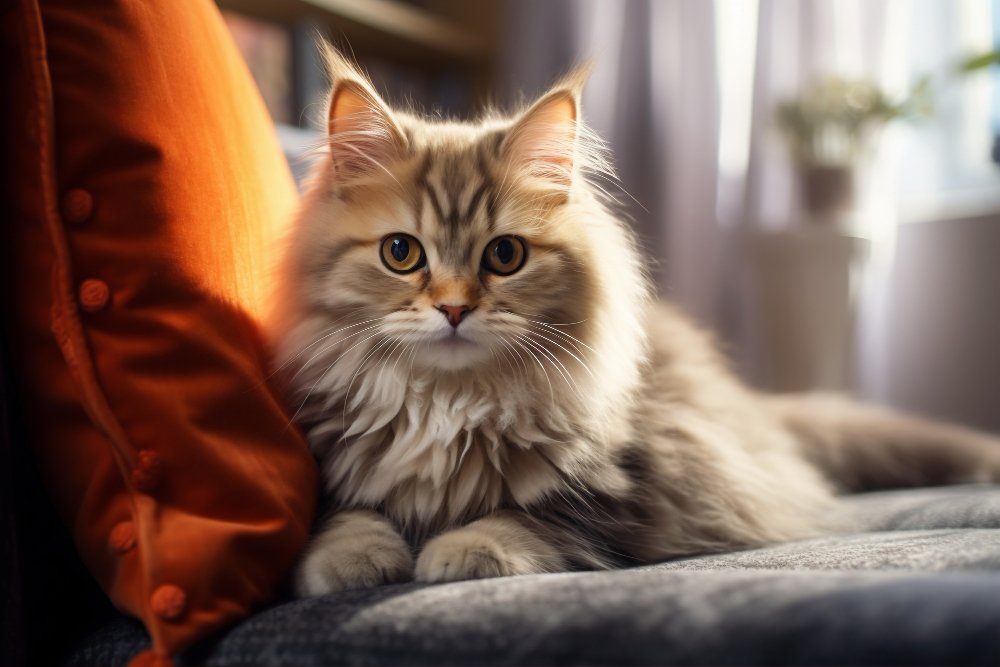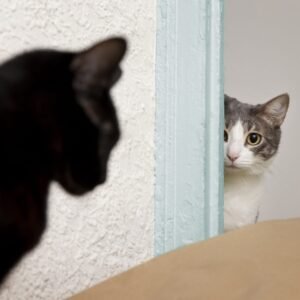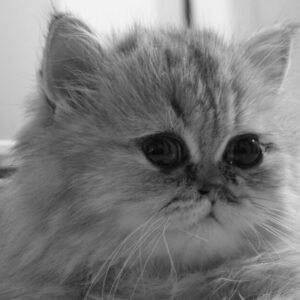Persian cats are not hypoallergenic, they are opposite to it. The large hair or fur of the Persian cat may also cause people to have allergies to them. To answer the question they are Persian cats hypoallergenic is officially no.
Their long, luxurious fur or hair might lead you to believe that Persian cats can cause allergies, but this is not true. Allergies can be caused by the saliva or the dander, not their hair.
As Persian cats also produce these proteins, they can also be allergic to some people.
What Causes Allergies In Cats?
All the Persian allergy triggers have one thing in common, they contain a thermostable protein in their saliva and it is known as fel d1 which causes the allergic things in them.
When someone has an allergic reaction, their immune system mistakes these proteins for a dangerous substance, like a virus or bacteria, and attacks them. The signs of an allergy are the evidence that your body is attacking these proteins.
Some people with cat allergies also react to fel d2 and fel d3. Tiny oil-producing glands in the cat’s body are the main source of the fel d1.
Whenever a cat suffers from an allergy and is attracted to these proteins it hurts the cat. Cats’ allergic protein is different from the dog’s allergic cause protein. In the USA cat allergies can affect twice to people as dog allergies.
Mainly the cat’s allergies are caused by dead skin(dander), urine, and saliva.
Are Persian cats disastrous for allergy sufferers?
If you want to adopt a Persian cat, you should notice following facts, to prevent yourself from cats allergens.
- Male cats tend to produce more allergens than females
- Neutered males produce less than intact ones (similar to females)
Before adopting a cat, you should spend a day with them and monitor your reactions. If you didn’t have an allergic reaction or experienced only a mild one, it’s safe to adopt a kitty.
Symptoms of hypoallergenic cat:
Symptoms Of a cat include coughing and wheezing, itchy red eyes, runny and stuffy nose, your skin getting too red or becoming swollen when your cat has bitten you, rash on your chest and face, and sneezing.
These are the factors by which you can recognize whether your cat is hypoallergenic or not.
You may also like: https://persiancatinfo.com/how-to-treat-cats-ringworm/
Persian cat and various allergies
As, it is known that Persian cats are not hypoallergenic. Many people trust that their long hair and fur can cause the allergy in them but it is not true.
The main cause is that they can cause more dander or not. Usually, the long-haired cat spends extra time grooming themselves as compared to the short-haired cat breeds which in turn release more saliva and their dead skin cells which is commonly known as a dander. into the environment which can cause allergies to trigger in them.
What about the Persian kittens? Are they hypoallergenic?
Usually the Persian kittens produce the protein fel d1 in a very small amount that they can become the cause of allergies in people. But it is not 100% that they are not hypoallergenic. They can become allergenic when they grow up as there is no guarantee in this.
Tips to reduce allergy in the Persian cat:
If you have a Persian cat, and you are trying to deal with the allergies in your cat, then this is very good news that there are different ways by which you can cope with a hypoallergenic cat.
Environmental precautions
If you want to treat your hypoallergenic Persian cat, then environmental precautions are the important and major thing.
First, taking care of your home is essential for the prevention of the allergy in cats, as it helps to reduce the production of fel d1 protein in cats. To make your living space free from the fel d1, you should:
- Install an air filtration system
- Clean your floors, and rooms as it decreases the fel d1 protein buildup.
- Train your Persian cat to stay away from your close and personal things like bed.
Wash your cat’s bed
Dander and the allergens can build up in your cat bed quickly so it means that not cleaning their bed is also the major source of allergies in them.
Make sure that your cat’s bed is cleaned twice or more times.
What foods cause allergies?
Food allergies can be developed at any age in the cat. Major food sources that can cause allergies include:
- Beef
- Fish
- Chicken
Foods that can cause allergies in fewer cats are:
- Corn
- Wheat
- Barley
- Lamb
- Rabbit
Foods to eat during allergies in cats:
A high protein cat food with no protein like wheat and ingredients like salmon, turkey, and ducts. In short,” Grain-free” and limited ingredients in food are safe for your cat during allergies.
FAQs
Does a Persian cat shed hair?
For most pets, shedding is a frequent occurrence. Persians, however, go above and beyond. Because of their long, lush hair, which sheds frequently and everywhere, no article of clothing is safe unless it’s kept under control. Even though your Persian’s fur is stunning, you probably like it better on them.
Do long-haired cats make allergies worse?
A myth exists that suggests cats with darker colored hair and those with longer hair are more likely to trigger allergies than cats with lighter colored or shorter hair. However, hair color and length have no influence.
Mostly, cats with longhair have shedding issues that causes allergens to some humans.
Are Persian cats high maintenance?
Persian cats are a high-maintenance breed. Their long flowing coat is likely to shed and needs daily grooming. You should use a metal comb to prevent tangles and hairballs. You should only bathe your Persian cat after having thoroughly combed them.
Can you live with cats if allergic?
Can I still have a pet if I have an allergy? By limiting exposure to allergens and/or treating symptoms, there are numerous ways to manage and lessen allergies. As a result, the majority of people are able to manage their allergies and keep their dogs.
Conclusion: Persian cats are not hypoallergenic.
Finally, I can say that their properties to shed their hair and dander make them not hypoallergenic. In my opinion, any cat breed is not truly hypoallergenic, so the title can’t be given to any cat breed.
If you want your cat not to be allergenic, check the steps, and precautions that are given at the top of the article.
Leave any comment about it.







